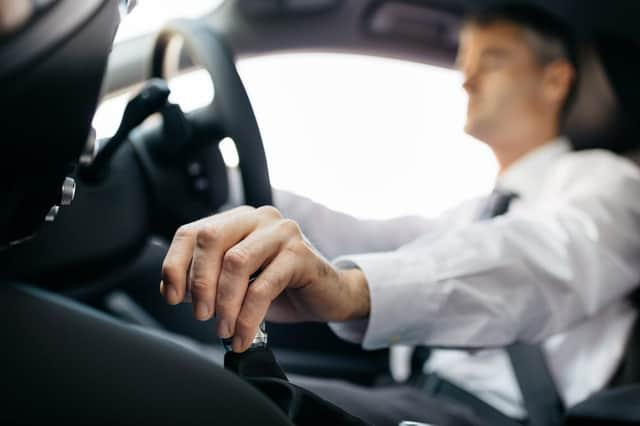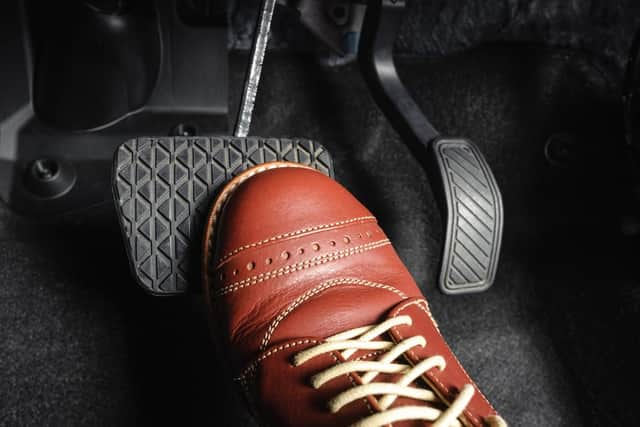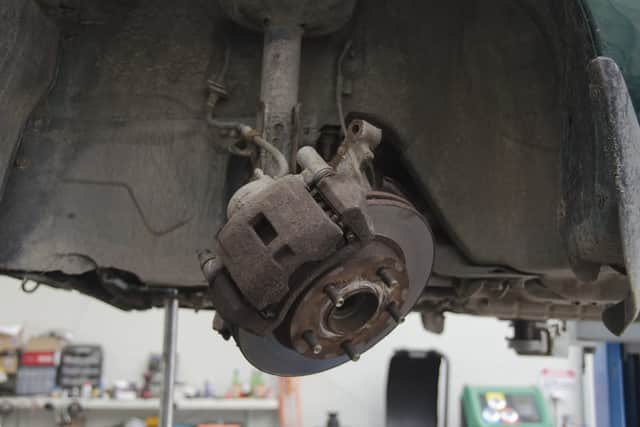These bad driving habits could be damaging your vehicle


Motorists have been urged to consider whether their driving habits could secretly be damaging their cars.
We all develop bad habits over a lifetime of driving but while some are relatively harmless, others can cause damage or premature wear and tear on our cars, leading to expensive maintenance bills or even permanent damage.
Advertisement
Hide AdAdvertisement
Hide AdTo help alert drivers to the damage they could be causing inadvertently, LeaseVan’s experts have come up with a list of some of the most common harmful habits.
A spokesperson said: “No driver is perfect, and we’re all probably guilty of doing one or two of these things from time to time.
“But problems arise when these habits go on and on, and aren’t nipped in the bud.
“Most families rely on their vehicles to get by in their day-to-day lives, so anything you can do to protect its mechanics will save you having to fork out for hefty repair bills sooner than necessary.”
Resting your hand on the gear stick
As well as being a potentially dangerous way to drive, resting your hand on the gear stick could also damage your car in the long run. If you do this a lot, you may be applying pressure to the selector fork or other internal parts of the gearbox without even realising it. Over time, this could cause these components to wear out much quicker than they should. This can lead to noisy gears, or the inability to select a gear properly and smoothly.
Riding the brakes
Keeping your foot on the brake for too long causes the braking system to get too hot, in turn damaging it and accelerating the usual wear and tear. Instead, move down the gears to allow the car to slow itself, and use the brake only when necessary, like when you’re coming to a complete stop.


Riding the clutch
Riding the clutch - keeping it partially depressed - is a really bad habit. Not only does it reduce the amount of control you have over your vehicle, but it also speeds up the natural wear and tear of your clutch, so you’ll probably have to pay to get it replaced more frequently than should be the case.
Revving the engine when cold
While parked overnight the oil in your engine will eventually settle at the lowest point it can, so when you get in your car the next morning and start revving the engine wildly without giving it time to properly circulate the oil, there can be metal on metal friction that damages the components.
Overloading your vehicle
Advertisement
Hide AdAdvertisement
Hide AdOverloading your vehicle places unnecessary strain on the brakes and suspension, increases fuel consumption and probably exhaust emissions too. So, don’t keep anything in your car that doesn’t need to be in there.
Flooring the accelerator in a high gear
Accelerating at low revs, or in too high a gear, means the engine is working harder. This also means that it’s being put under unnecessary strain. Change down a gear and allow the revs to rise gradually before changing up. This is particularly relevant when carrying heavy loads or when climbing hills.
Hitting potholes and speed bumps


Potholes are the bane of most driver’s lives, but you really should pay attention and take care not to hit any. When you hit a pothole, the impact can cause buckled wheels, lumps in the tyre, and even cracked alloys. It can also upset the tracking and wheel balance. Read how to claim compensation for pothole damage here.
Late braking
It is far better to slow your vehicle smoothly and gently, than to brake harshly at the last minute. Doing the latter places huge strains on the brakes, wearing out the pads and discs much faster - both of which aren’t exactly cheap to replace.
